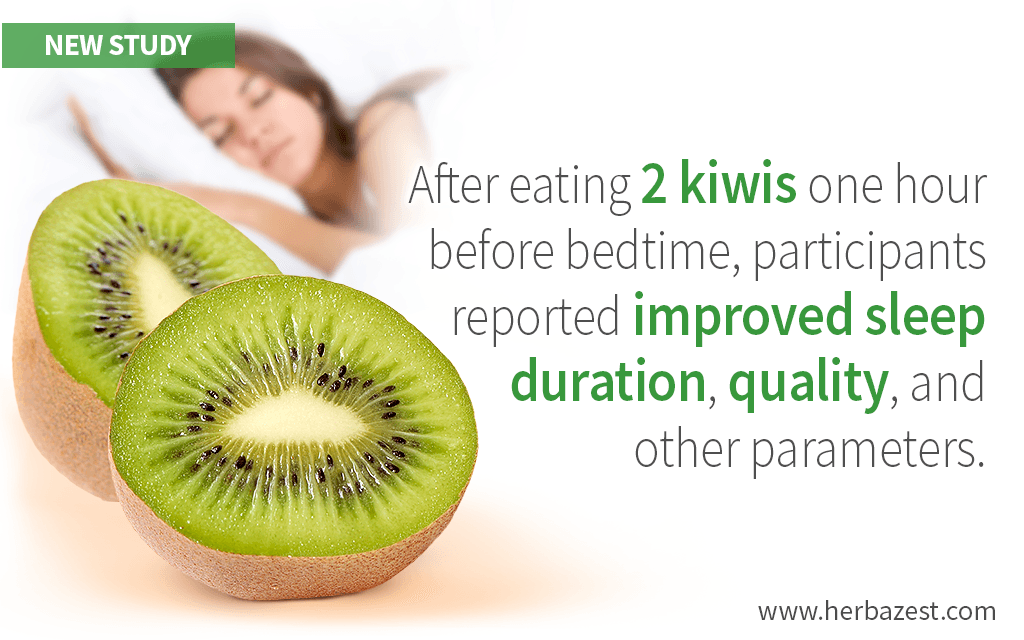About 70 million Americans are said to suffer from chronic sleep problems.1 It has also been shown that sleep disorders increase the concentration of free radicals in the body, leading to oxidative stress. This, in turn, may contribute to aging and the development of various health conditions.
While kiwis are commonly perceived as healthy, many people are not aware of the full scale of their properties. To explore the fruit's potential therapeutic applications, Taiwanese researchers conducted this clinical trial and assessed the effects of kiwi on sleep patterns.
The Study
There were 24 adults, between the ages of 20 and 55, recruited for this study, which took place at Taipei Medical University, Taiwan. All participants had self-reported sleep disturbances.
They consumed two kiwifruits one hour before bedtime every day for four weeks and were instructed to maintain their dietary and physical activity patterns.
Using a variety of sleep assessments (including the Chinese Version of the Pittsburgh Sleep Quality Index, or CPSQI), researchers evaluated the effects of consuming kiwi on sleep parameters, including sleep onset, duration, and quality.
The Results
After four weeks of eating kiwis before bedtime, researchers observed significant improvements in sleep onset, duration, and efficiency.
The most notable changes were seen in the following sleep parameters:
- CPSQI score decreased by 42.4%
- Wakefulness after sleep onset (WASO) decreased by 28.9%
- Sleep onset latency (SOL) decreased by 35.4%
- Total sleep time (TST) decreased by 13.4%
- Sleep efficiency increased by 5.41%
What Does this Mean?
As shown in the results of this clinical trial, eating kiwi can improve sleep patterns, particularly its onset, duration, and efficiency.
Researchers believe that kiwi's sleep-improving properties may be due to its high antioxidant, serotonin, and folate content. However, they emphasize the need for additional studies to fully understand the potential benefits of kiwi consumption for alleviating sleep disorders.
Other herbs with sleep-enhancing properties are chamomile, almonds, cashews, and bananas.
Sources
- Asia Pacific Journal of Clinical Nutrition, Effect of kiwifruit consumption on sleep quality in adults with sleep problems, 2011
Footnotes:
- CDC. (2017). Sleep and Sleep Disorders. Retrieved March 12, 2022, from https://www.cdc.gov/sleep/about_us.html




